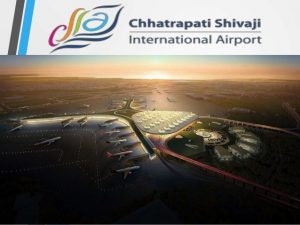 NEW DELHI: Chatrapati Shivaji International Airport put its Airport Emergency Handlers (AEH) through an exhaustive training programme to enhance their preparedness to respond to Chemical, Biological, Radiological and Nuclear (CBRN) threats.
NEW DELHI: Chatrapati Shivaji International Airport put its Airport Emergency Handlers (AEH) through an exhaustive training programme to enhance their preparedness to respond to Chemical, Biological, Radiological and Nuclear (CBRN) threats.
Administered by the National Disaster Management Authority, the six-day programme consisted of lectures, field training as well as live demonstrations of detection and decontamination, including the use of Personal Protective Equipment (PPE).
Apart from equipping the AEHs to handle CBRN emergencies, the training programme also refreshed their training in the administration of medical first aid and initial psycho-social support to passengers using the Mumbai Airport. Experts from the field of safety and disaster management delivered lectures and held demonstrations on various related areas of CBRN emergency management.
MIAL spokesperson, said, “Mumbai Airport has been at the forefront of implementing globally benchmarked safety best practices. Conducting the NDMA-administered training programme is part of our relentless effort to continually raise our safety standards in the face of constantly evolving threats. This training will enhance the skills of our Airport Emergency Handlers so that they will be ready and prepared for any challenges.”
A total of 200 personnel were trained, which included week-long training of 50 participants representing various agencies responsible for O & M emergency handling and sensitization of 150 working level staff in a half-day programme.
“It is one major step towards enhancing CBRN safety at our airports” said Shri R. K. Jain, Member, NDMA while highlighting the fact that handling CBRN emergencies needed specialised skills and efforts.
“Even a small CBRN-related event can cause panic among people at the airports. It is, therefore, important that airport emergency handlers are able to respond appropriately till the arrival of highly trained and better equipped response teams,” said Dr. D.N. Sharma, Member, NDMA.
The training programme was conducted in collaboration with the Airport Authority of India (AAI) and Institute of Nuclear Medicine & Allied Sciences (INMAS).
